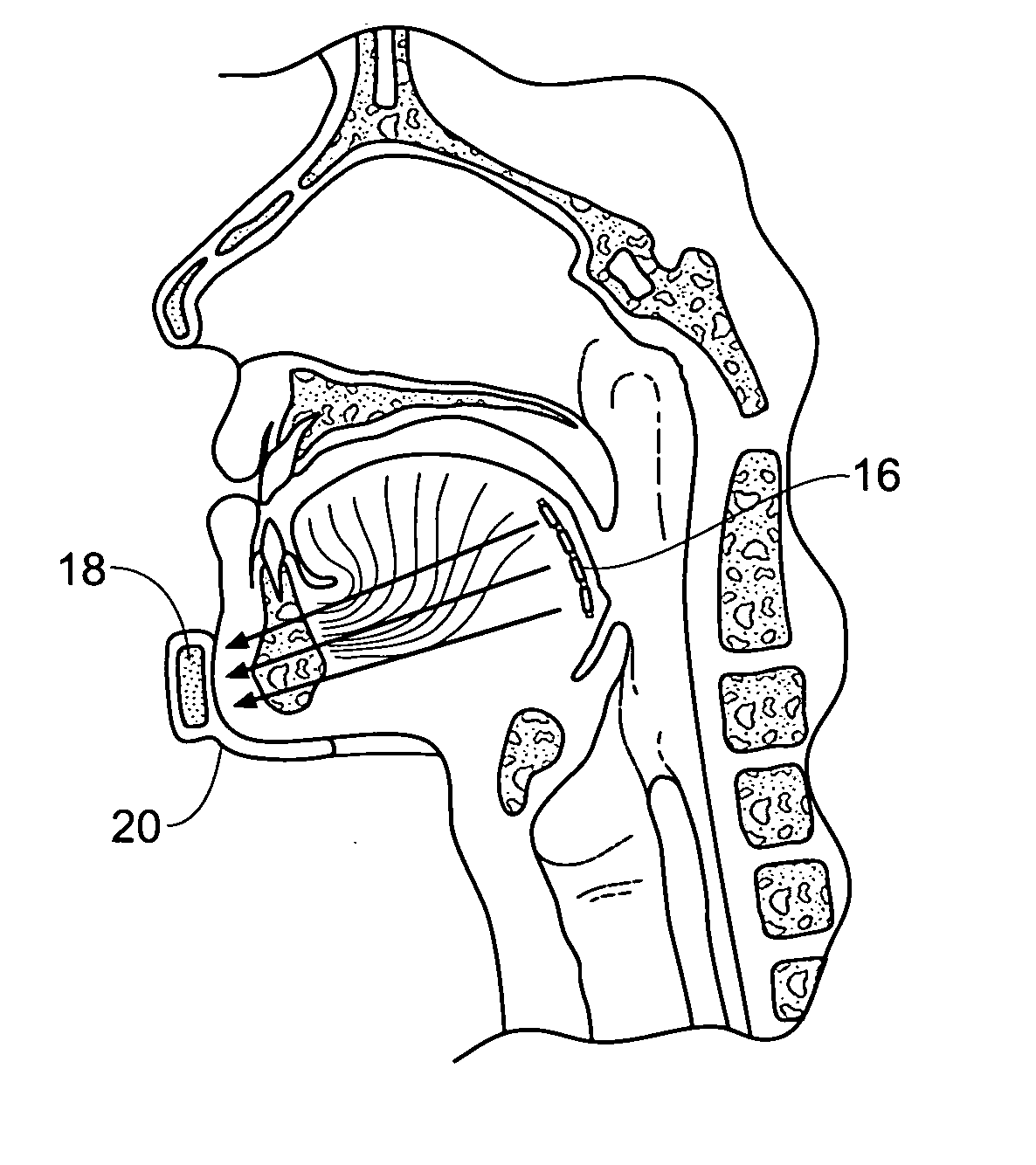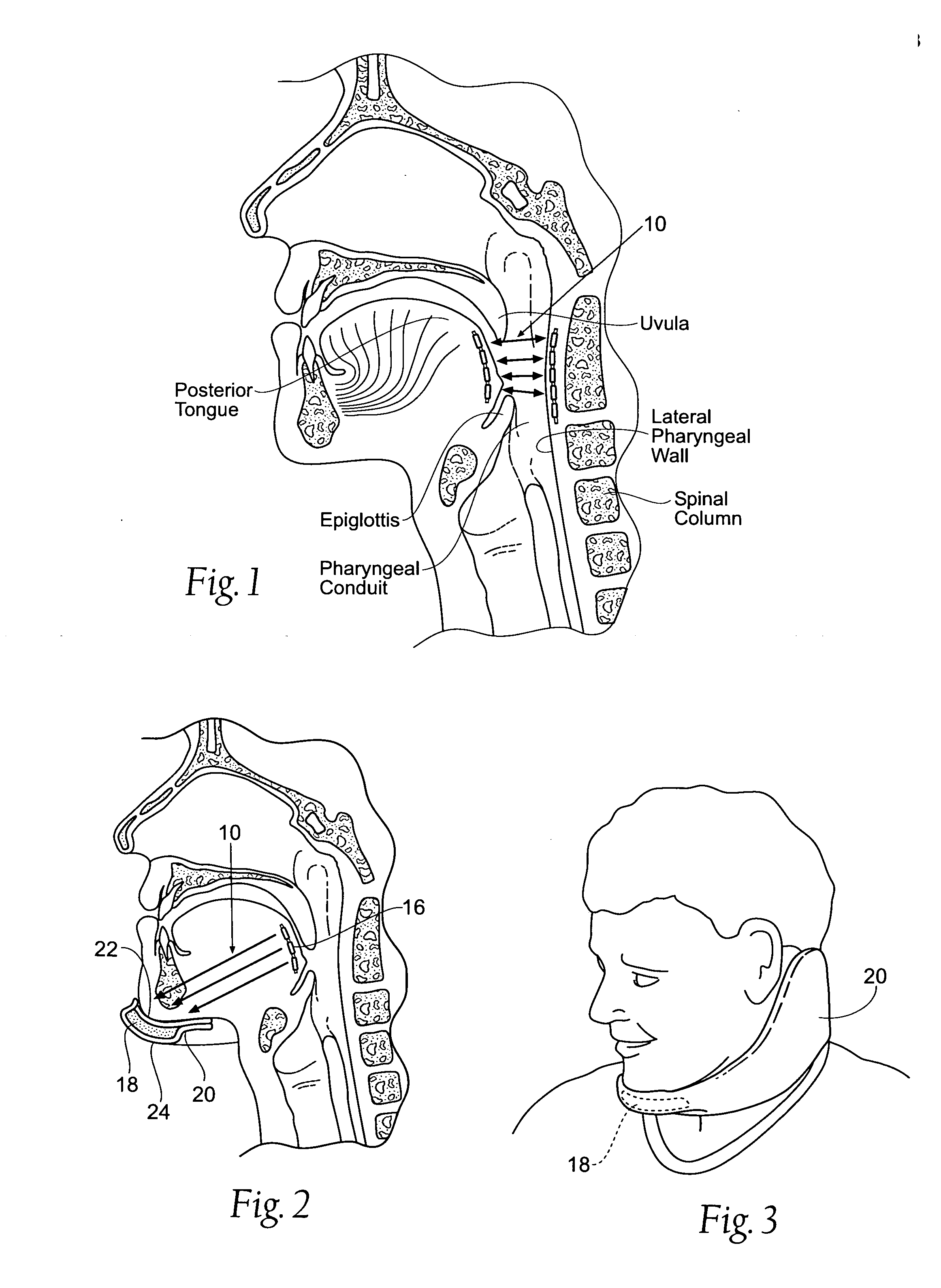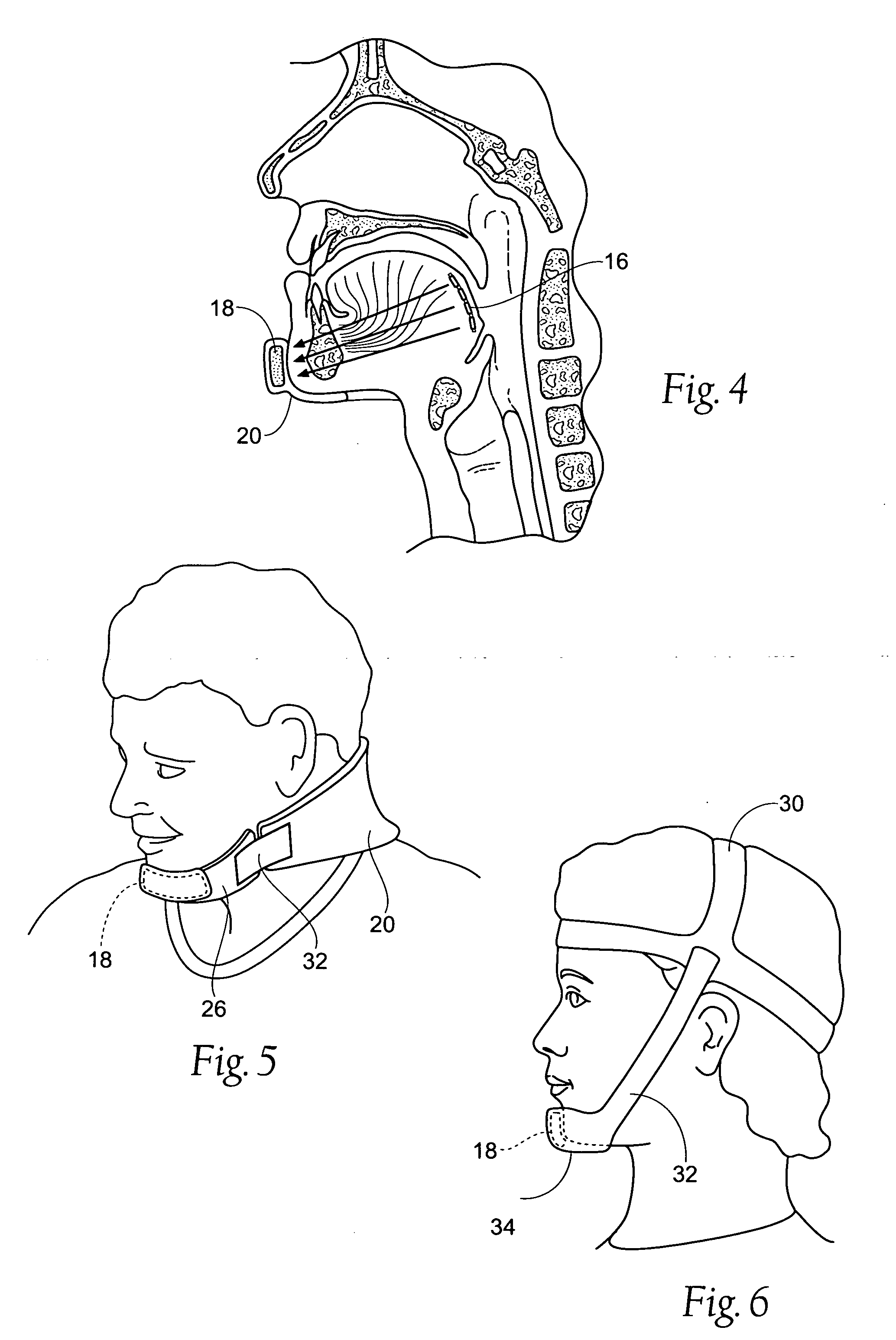Devices, systems, and methods for stabilization or fixation of magnetic force devices used in or on a body
a technology of magnetic force device and body, applied in the field of devices, systems and methods for stabilizing or fixing magnetic force device in or on the body, can solve the problems of affecting the stability of the magnetic implant in the tissue, and affecting the stability of the magnetic implant. , to achieve the effect of improving the tolerance of the implant, preventing the migration of the implant, and stabilizing the magnetic implant in the tissu
- Summary
- Abstract
- Description
- Claims
- Application Information
AI Technical Summary
Benefits of technology
Problems solved by technology
Method used
Image
Examples
Embodiment Construction
[0064] This Specification discloses various magnetic-based devices, systems, and methods for improved stabilization of magnetic forces both during implantation and at an implanted position. For example, the various aspects of the invention have application in procedures requiring the restriction of tissue collapse in and / or around the body, such as a passageway within the body. The devices, systems, and methods that embody features of the invention are also adaptable for use with devices, systems, and methods that are not restricted to tissue based applications.
[0065] The devices, systems, and methods are particularly well suited for treating sleep disordered breathing, including sleep apnea. For this reason, the devices, systems, and methods will be described in this context. Still, it should be appreciated that the disclosed devices, systems, and methods are applicable for use in treating other dysfunctions elsewhere in the body, which are not necessarily sleep disorder related. ...
PUM
 Login to View More
Login to View More Abstract
Description
Claims
Application Information
 Login to View More
Login to View More - R&D
- Intellectual Property
- Life Sciences
- Materials
- Tech Scout
- Unparalleled Data Quality
- Higher Quality Content
- 60% Fewer Hallucinations
Browse by: Latest US Patents, China's latest patents, Technical Efficacy Thesaurus, Application Domain, Technology Topic, Popular Technical Reports.
© 2025 PatSnap. All rights reserved.Legal|Privacy policy|Modern Slavery Act Transparency Statement|Sitemap|About US| Contact US: help@patsnap.com



